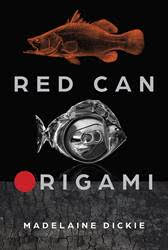Although ‘principle’ and ‘principal’ sound the same, as do ‘past’ and ‘passed’, they are often used incorrectly in a sentence. These two pairs of words are called homophones — two or more words that sound the same (identical pronunciation), but have different meanings and sometimes different spellings. The term homophone comes from Greek ‘homo-’ (same) and ‘-phone’ (sound), so the word literally means: ‘same sound’.
First, let’s focus on principal/principle.
Principle is always a noun. It derives from the Latin word for beginning, and its primary meaning refers to a basic truth, a fundamental law, an understanding or rule, such as:
I always adhere to grammatical principles.
A woman of principle, she was not concerned about money.
He found it hard to understand the principle of relativity.
However, principal can be a noun or an adjective. As a noun, ‘principal’ refers to someone who holds a presiding position or first rank, such as the head of a school; or the amount of money you borrow when you take out a loan.
Sally was appointed school principal.
Every quarter we have to pay interest on the principal.
As an adjective, ‘principal’ refers to the first, the most important, or the most prominent feature, such as:
Surrey is one of the principal English counties.
Tom is the principal dancer in the company.
Texture is the principal design element in Jane’s contemporary art practice.
Next, passed/past.
Passed is the past tense of the verb ‘to pass’, which suggests movement. For example:
We passed two women rowing their pink skiff down the river.
Time passed slowly today.
The truck passed us on the highway.
Maggie passed the chocolates to me.
Tom only passed one of his exams.
Straightforward?
Past is not a verb, but it can be a noun, adjective, adverb or preposition. For example:
The past few weeks have been a nightmare. (adjective)
In the past, dinosaurs roamed the world. (noun)
I have put the past behind me and I’m moving on in my life. (noun)
Marcus drove past the police without stopping. (‘past’ as a preposition is followed by a place, person or object)
A week went past before she apologised. (‘past’ as an adverb does not precede a place, person or object)
When editing or proofreading, I often find the following two examples of incorrect selections of past/passed:
I was in a hurry so I pushed passed her.
In the sentence above, there is already a verb (‘pushed’); passed has been mistakenly used instead on the preposition, past.
Correction: I was in a hurry so I pushed past her.
In the sentence below, ‘past’ is being used incorrectly as a verb.
It didn’t take long before he past me during the uphill race.
The word ‘past’ should be replaced with the verb ‘passed’.
Correction: It didn’t take long before he passed me during the uphill race.
Or, a verb denoting movement could be added such as ‘ran’, using the word past (correctly) as a preposition.
Correction: It didn’t take long before he ran past me during the uphill race.
As an editor and proofreader, I’m always on the lookout for space-waster words, and ‘past’ is often one of these culprits. For example,
Flooding has been a major problem in this area for the past 20 years.
I hope you agree that ‘the past’ is superfluous in this sentence. Also, ‘past’ can be deleted in the following expressions: past history, past experience, past achievements.
 If you are ready to have your writing edited or proofread, or you would like an appraisal of your writing, whether it is a complete manuscript or a work-in-progress, then please email me (denise@denisemtaylor.com.au) or via my contact page with a brief overview of your needs.
If you are ready to have your writing edited or proofread, or you would like an appraisal of your writing, whether it is a complete manuscript or a work-in-progress, then please email me (denise@denisemtaylor.com.au) or via my contact page with a brief overview of your needs.
My editing is based on the Australian Style Manual (ASM) unless an author has been commissioned to write a book using the publishing house style guide. In particular, editing academic writing requires the editor to adhere to the preferred style and referencing of the university department or publisher.
(featured image: Simone Secci – Unsplash)






